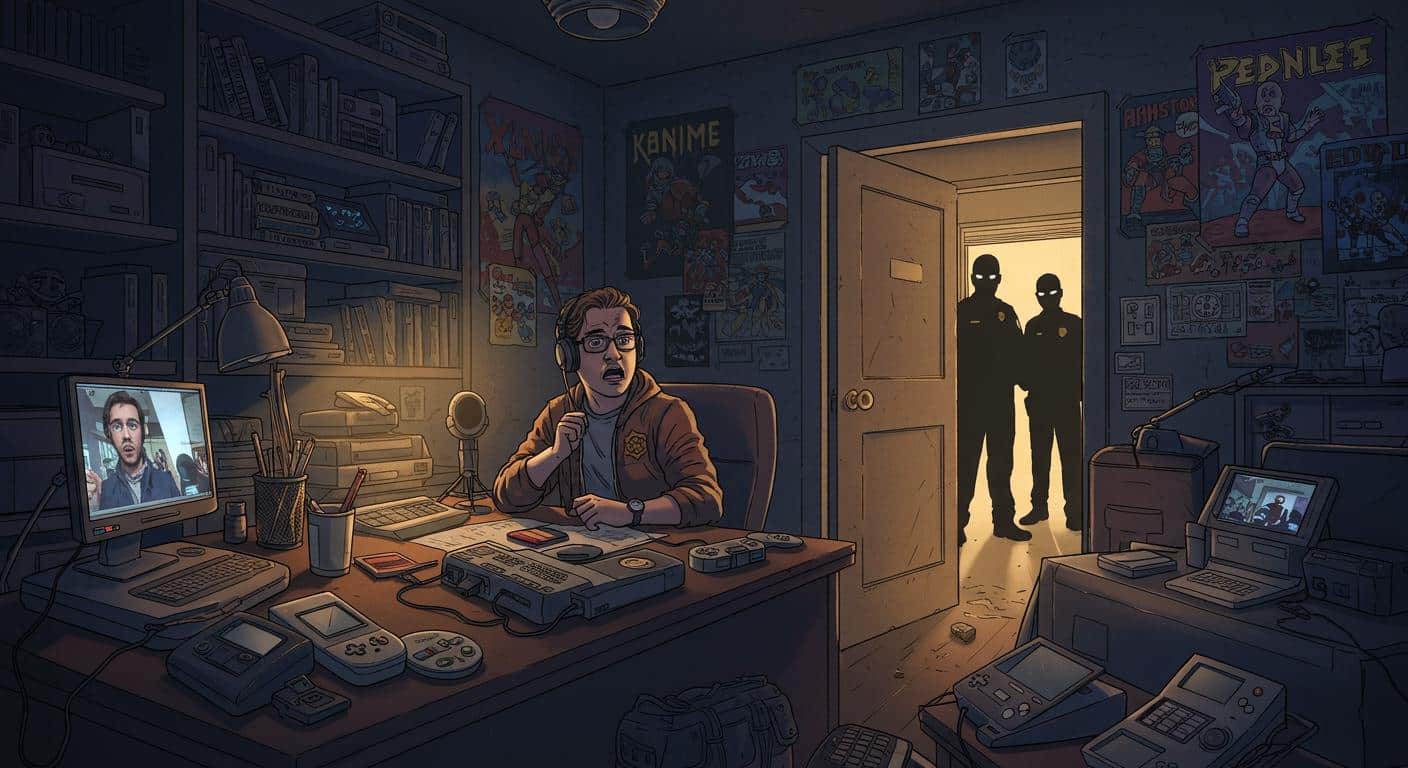By now, copyright squabbles and DMCA take-downs are practically woven into the fabric of any retro gaming YouTube channel. But even by the Kafkaesque standards of game copyright drama, the situation unfolding for Italian YouTuber Once Were Nerd feels like a sudden switch from “annoying” to “possibly criminal.” As reported by Android Authority, reviewing handheld consoles has landed this creator not just in hot water, but potentially in a court cell.
When Unboxing Turns into “Unlawful”
Most YouTubers in the retro gaming world cut their teeth reviewing products that blur the line between nostalgia and legal gray area—never a simple task, but not something that usually requires legal counsel on speed dial. Once Were Nerd’s niche seems pretty typical at first glance: reviewing devices like the ANBERNIC RG Slide, which enjoys popularity not for its buttons or battery life, but for its ability (sometimes fresh from the factory) to run a veritable museum of copyrighted games. The difference this time around? Italian customs authorities weren’t interested in issuing a polite cease-and-desist. As Android Authority details, the Guardia di Finanza, Italy’s financial police, seized more than thirty consoles from the YouTuber’s collection, as well as his phone—which they returned, curiously, only after two months.
It’s a situation that would make anyone pause: Does reviewing a device that ships with pre-loaded content automatically drop you into the legal quicksand of “promoting piracy”? How much responsibility should rest on the reviewer if the hardware’s contents aren’t always under their control?
The law being invoked against him, Article 171 ter of Italy’s copyright law—originally composed in 1941—remains on the books, threatening up to €15,000 in fines and a potential three-year prison stint for actions authorities consider “promoting” piracy. Android Authority points out the somewhat charmingly outdated nature of the statute; it still references Italian Lira, a relic of a currency two decades extinct.
Review or Recommendation? The Greyest of Areas
According to the reporting, the YouTuber did not push affiliate links or plug sponsored content, a move meant to keep reviews impartial. Yet even without that active promotion, authorities allege that showcasing these devices—many of which arrive loaded with copyrighted ROMs—is tantamount to encouraging copyright infringement. Evidence from his own communications with manufacturers was reportedly scrutinized as part of the investigation.
Adding another layer to the legal labyrinth, Android Authority explains that under Italian law, officials are not required to inform him of the exact charges or the complainant during the investigation. The complaint references pirated material from heavy hitters like Nintendo and Sony, but interestingly, it may have started with the enforcement agency itself. While the process churns away behind closed doors, Once Were Nerd faces the looming possibility of losing his channel—potentially even before being convicted. This echoes the outlet’s warning about the real dangers for creators operating in countries governed by copyright laws desperately in need of modernization.
Let’s pause for a moment: Is it not remarkable that a creator’s years of work can be threatened simply because they fall under investigation, not even formal charges? Where is the threshold for “promotion,” and does merely talking about a product—without direct distribution or endorsement—cross that line?
Outdated Laws, Modern Headaches
While many would agree that piracy is a legitimate concern, the application of a law crafted eighty years ago to modern digital content seems, at the very least, fraught with complications. Android Authority describes the current landscape as particularly precarious for creators, given how swiftly and severely authorities can act based on laws that predate both the internet and nearly every gaming system in question.
For his part, the YouTuber cooperated fully—handing over transcripts, devices, and essentially awaiting the result of an investigative process that seems almost glacial by digital standards. The outcome remains to be seen, but the mere possibility of a pre-trial channel shutdown has likely sent a chill through the retro gaming community. Who else, quietly reviewing imported gadgets for a loyal audience, is now left wondering if their next upload could land them in a similarly sticky situation?
A Cautionary Tale, Still Unfolding
If this all feels unusually dramatic for the world of hobbyist tech reviews, you’re not alone in your bemusement. There’s a certain irony: while vast and shadowy swathes of web piracy go unchecked, a single YouTuber reviewing plastic rectangles packed with retro games finds himself under intense scrutiny. Perhaps that’s the enduring lesson in an environment shaped equally by algorithms and the hard edges of legal history.
The case is ongoing, the outcome uncertain, and the questions it raises are broader than any single reviewer or console. Where do we draw the lines between education, critique, and infringement? When—if ever—will the legal frameworks governing digital content catch up with the realities faced by creators? And in the interim, how many other peculiar, unexpected consequences will spill out—leaving creators and their audiences to navigate the weirdly fascinating minefield of online fandom and retro tech?
Sometimes a review is just a review. Sometimes, apparently, it’s a federal case.







